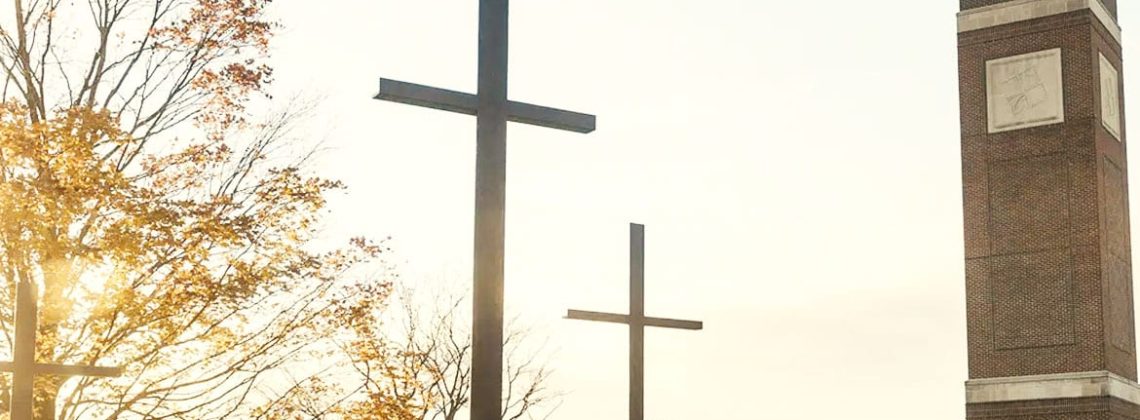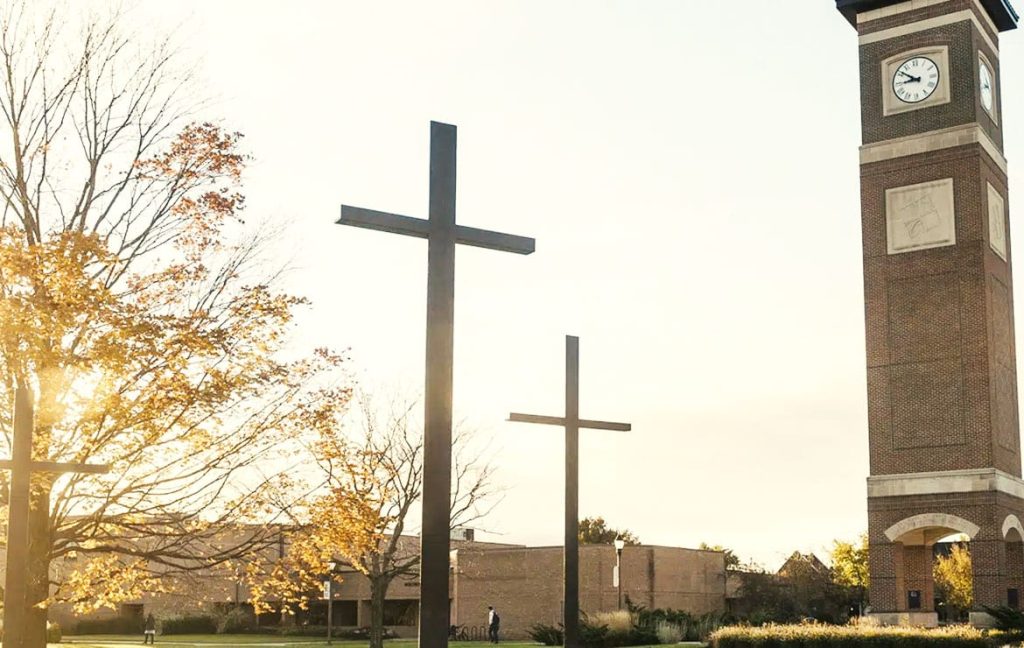

Are you new to this story? Get up to speed here.
The alumni of Cornerstone University recently received this statement from Richard S. Koole, chair of the Cornerstone University Board. Current was able to obtain a copy:
Fellow Alumni,
Like many of you I was saddened, but not surprised, to hear that our sister school, Clark Summit University was closing for good this summer. Recently Multnomah University, Kings College of New York, Eastern Nazarene, Lincoln Christian, Nebraska Christian and many others have done likewise. In addition, others like Trinity Evangelical, Seattle Pacific, and Concordia University have made drastic cuts such as discontinuing on-campus classes, cutting 40% of their budget, and eliminating all sports teams. As of August 2023, over 40% of college closures since 2020 have been Christian colleges. Needless to say, the threat is real, and many others are facing an existential threat.
The Board of Trustees along with our President Dr. Gerson Moreno-Riano and his leadership team are taking the proactive steps necessary to ensure that your alma mater not only survives, but that it grows and prospers while strengthening its Christ-honoring foundation. Having been aware of the special threats faced by Christian colleges and universities, we have taken the following steps over the recent years.
Financial:
We are delighted that the recent new buildings (Baseball Stadium, Nursing Facility, Science Building, and Christ Chapel) were all paid for in full, without incurring any new debt. Last year the Board was delighted when the last of the building debt incurred many years ago was paid off and the University became debt free. With the cost of college soaring out of the reach of many prospective students, last year Cornerstone surprised current and future students with a “tuition price reset” by reducing our tuition cost by 22% making Cornerstone one of the most affordable and quality Christian universities available to students.
Our Mission:
The Board and President strongly reaffirmed our unapologetic commitment to our traditional Christ-centered mission. We are incorporating this commitment in all our academic programs, hiring, promotion and tenure, and operations.
Statement of Faith:
We have re-affirmed that all our faculty and staff are in agreement with the “Cornerstone Confession,” our Statement of Faith, as well as all of our other Biblical and Christian core commitments. We are incorporating this commitment in all academic programs, hiring, promotion and tenure, and operations.
Academics:
In recent years, Cornerstone has studied the ways it can continue to serve the interests and needs of our current and future students. In response, the university has added majors that today’s students are seeking including Engineering, Nursing, Math, Clinical Counseling, Data Analytics, Christian Worldview & Apologetics, Chemistry, and Computer Science. There were also some majors with small enrollments and few future students wanting to enroll in them. It’s imperative that universities be aware of the changing needs of future students and be willing to take the sometimes-difficult steps to ensure they are prepared to meet those changing needs. Failure to do so can lead to the closure of a university.
Following is a brief overview regarding the majors that are being discontinued. We have combined the areas of literature and creative writing into one English major. Linguistics, Publishing and Professional Writing are now a part of the English major, with options for students to concentrate (or minor) in many of those specialties. We took our small music programs and enhanced them into two larger, major programs so we can now offer degrees in – Music Production and Worship Ministry. Since there was no demand for our History and Civics major, we emphasized our Social Studies Teacher Education program and its history and civics coursework for students who could be interested in some history and civics courses. We expanded the way we offer Media Production to include the options to minor in audio, film, or digital media. We enhanced Cornerstone’s traditional MBA program to offer new concentrations, allowing students who are interested in specific areas to specialize, rather than be limited to a traditional MBA.
Although majors may adjust to an ever-changing job market, our General Education core classes will continue to expose students to the humanities; and of even more importance, they will be taught based on a Christ-centered foundation. Our foundation for the humanities will focus on God, human dignity and the imago Dei, and our privileged responsibility to serve as citizens of heaven and earth. Our approach to the humanities will be stronger than ever and focus on the truth and beauty of God and His creation. Our approach will not focus on deconstructing the Bible and truth while championing skepticism and contrarianism. We are committed to the beauty of God’s truth and revelation.
Enrollment:
After over 12-years of declining enrollment, the changes just cited are having a positive effect. In the recent academic year, we posted our first total growth in enrollment since 2012. And we are pleased to share that our enrollment for next year is currently ahead of this time last year. In closing, the Board of Trustees is composed of men and women (almost half of them alumni) who love Cornerstone and are committed to not only making sure that our university survives the very real threats crippling or closing many of our sister schools, but also taking the bold, yet prudent, steps needed to ensure that Cornerstone will prosper. We appreciate your continued support and please feel free to pass this message on to others.
Richard S. Koole, Ed.D. Board Chair
Three sentences in Koole’s statement are worth highlighting:
- Koole writes, “Our approach to the humanities will be stronger than ever and focus on the truth and beauty of God and His creation.” This statement seems rather absurd in light of the fact that Cornerstone just eliminated the humanities department and nearly every full-time professor in the humanities.
- Koole writes, “Our approach will not focus on deconstructing the Bible and truth while championing skepticism and contrarianism.” What does this mean? Is he saying that the humanities professors recently fired were let go because they were deconstructionists and contrarians? The website Voice of CU recently published notes from a 2022 meeting in which faculty claimed that the Cornerstone administration treated them like “troublemakers.” Perhaps this explains Koole’s use of the word “contrarianism.”
- Koole writes: “our General Education core classes will continue to expose students to the humanities; and of even more importance, they will be taught based on a Christ-centered foundation.” This seems to imply that the fired humanities professors were not doing this before they got fired.
Koole also doubles down on the insistence that Cornerstone has incorporated history and civics into Social Studies Major and kept an English and Music Major. As we noted in a previous post, Martin Spence was the sole Social Studies content professor at Cornerstone. So why did they fire him based on the claim that there was no longer a program for him to teach in anymore? According to Koole, the program in which Spence did most of his teaching still exists. And if there is still an English Major, why did the administration fire all the English faculty based on the claim that there was no longer an English program?
Were these faculty really fired for economic reasons (since the Cornerstone administration ultimately kept the programs they were teaching in!) Or were they fired because they challenged the President’s ideology and authoritarian leadership? This story is not going away.
UPDATE (July 11, 2024, 6am):
Since we published this post we have learned more about the “contrarianism” noted in point #2 above.
In her recent piece at Religion News Service, Kathryn Post quotes former Cornerstone Creativity Professor Julia Peterson. She says: “The list of people who were terminated were all people who were deeply concerned about what the president was doing.”
It seems that the administration had been stifling dissent for some time. Post reports that Philosophy Professor Matt Bonzo “had been pushed out after refusing to sign an oath of loyalty to the president.” My sources tell me that in fact all faculty were asked to make a written statement supporting the President’s vision in Fall 2023 or else take a voluntary separation package. Faculty anger forced the administration to back down, although not before several faculty had negotiated their exit.
Post also notes that “in October 2023, the faculty senate was reportedly disbanded and replaced by an ‘academic senate’ of approved faculty and administrators and chaired by the vice president for academics.” My sources tell me Senators had invited President Moreno-Riaño to talk with them at what turned out to be their final meeting, to discuss ways they could work together to improve faculty morale, but he declined the invitation.
Also, as retired Chemistry Professor Jim Fryling has noted, in the middle of the Fall 2023 semester the administration cancelled all faculty meetings without explanation. This followed a spirited meeting at which faculty members raised questions about a new “worldview rubric” required by the administration. Here is Fryling’s comment on the blog of David L. Turner, a former Cornerstone faculty member:
I gave the university notice last August that this past academic year would be my last after teaching chemistry there for 27 years. This was before any of the current developments, though after the faculty vote of no confidence in our new president (a vote in which I abstained.) My heart grieves over what has been happening over the last year that has now led to the current situation. I have seen the faculty be completely disenfranchised and excluded from any significant decision-making.
Some data points/observations:
1. During the last academic year the full faculty only had two meetings, other than required “Christian Worldview” training meetings of all faculty and staff. In those meetings information was presented to the faculty on decisions that had been made without discussion among the faculty.
2. One faculty meeting was 15 minutes long and conducted with each school. That meeting was essentially a rebuke telling faculty they must not discuss their concerns in their classrooms.
3. Faculty are now required to have in every course syllabus lessons where Christian Worldview is incorporated in the lesson. While this might make sense in many courses, imagine trying to force this into General Chemistry. The purpose behind this requirement was for show, so that Cornerstone can use the published syllabi to make the case that Christian Worldview is a part of everything we do. The whole concept of what-is-taught vs what-is-caught was not considered.
4. For purely financial/enrollment reasons there is a STRONG push toward online learning and moving as many classes as possible online. But many faculty view online courses as problematic since it is nearly impossible to have a significant impact on a student’s walk with God without seeing them face-to-face. This is perhaps the most significant change Cornerstone has undergone—changing our focus from helping our students grow as followers of Christ vs helping them to have successful careers. This change alone makes me glad I left when I did.
5. The faculty contracts that were signed by the faculty this year were tendered very late—the administration insisted that the contracts be based on a new faculty handbook that wasn’t approved by the board until late April or early May. While the old faculty handbook protected tenured faculty from termination (except for cause), the new handbook emphasized that all employees were at-will. This change is what made it easy for the administration to fire the tenured faculty members.
I would be grateful if you updated the spelling of my name as quoted in the article, it should be Julia Petersen. Thank you!